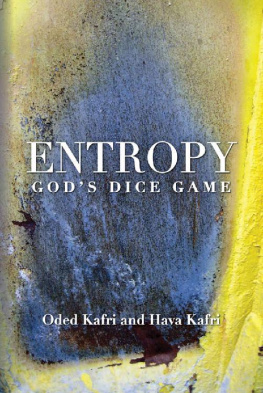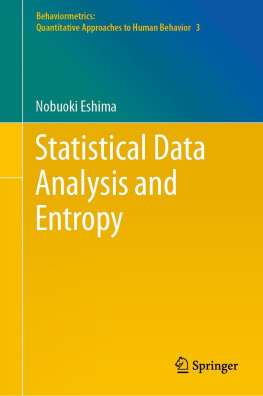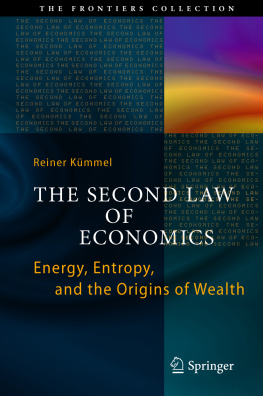Entropy Academy
How to
SUCCEED at HOMESCHOOLING
Even if You Dont Homeschool
Alison Bernhoft

Copyright Alison Bernhoft 2016
All rights reserved. No part of this publication may be reproduced, distributed, or transmitted in any form or by any means, including photocopying, recording, or other electronic or mechanical methods, without the prior written permission of the publisher, except in the case of brief quotations embodied in critical reviews and certain other noncommercial uses permitted by copyright law.
Printed in the United States of America.
First Printing, 2016 ISBN-13: 978-1-943370-01-6
Library of Congress Control Number: 2016931918
Propriometrics Press: propriometricspress.com
Cover & Interior Design: Agnes Koller, figdesign.ca
Cover Photo: Nabi Tang / Stocksy United
Photographs: Alison Bernhoft
Publishers Cataloging-In-Publication Data
(Prepared by The Donohue Group, Inc.)
Names: Bernhoft, Alison.
Title: Entropy academy : how to succeed at homeschooling even if you dont homeschool / Alison Bernhoft.
Description: [Carlsborg, Washington] : Propriometrics Press, [2016]
Identifiers: LCCN 2016931918 | ISBN 978-1-943370-01-6 (print) |
ISBN 978-1-943370-07-8 (ebook)
Subjects: LCSH: Home schooling. | Education--Parent participation. | Entropy.
Classification: LCC LC40.5.E68 B47 2016 (print) | LCC LC40.5.E68 (ebook) | DDC
371.042--dc23
To my children, co-constructors of Entropy Academy and simply the most amazing people I know.
Contents
Guide
Introduction
M y head always told me this would happen: that the day would come when I had no one to teach, no small feet thundering round the house, no eager voices clamoring for attention. My heart, however, knew that I would always be surrounded by family, that there would be an infinite supply of small children to love, educate, and care for.
The truth is out: my head was right. Our older children are all away at various colleges, while the youngest is the first of our children to begin high school at a genuine, certified institution. For the first September in living memory I have no courses to plan, no academic goals to plot, no social activities to coordinate. I tell myself that its not an empty nest, its a successful launching pad; that our goal in bringing children into this world was to send them out into it as well-balanced, independent young adults. But the house still seems awfully quiet.
Looking back on twenty-plus years of homeschooling, I wonder what I would have done differently if I had known then what I know now. If I could talk to myself twenty years ago, what would I say? What advice would I give? I would definitely tell myself to relax and enjoy the ride; I would reassure my worries and offer copious encouragement. I would tell the gremlin that sat on my shoulder, haranguing me about what a real homeschooling mother would or wouldnt do, to get lost. It might pretend to have my childrens best interests at heart, but its a beast of pure destruction. Whats more, I would continue, the most important person in any homeschool is the mother. It doesnt matter how brilliant the curriculum is, how enriching the extracurricular activities; If Momma aint happy, aint nobody happy.
My biggest enemy was always a crushing sense of inadequacy. Nobody congratulated me on a job well done, I received no kudos or accolades. My children were never heard to say, Way to teach algebra, Mummy, good job! I frequently felt like giving up. Often, I battled depression. In order to assuage the guilt I felt at making what I saw to be such a colossal mess of their education, I devised ways of making the house do the teaching. That way, theyd still be learning, whether their mother was in inspired pedagogical mode or (as was far more likely) not. The kitchen and bathroom were particularly amenable to becoming centers of automatic learning. No one, whether family member or guest, could long endure in either location without having their grey matter tickled: I wonder why that perpetual motion machine on the windowsill keeps spinningI wonder which color hyacinth will bloom first, pink,yellow, or blueWhat is the square root of twenty-five?
I had dual concerns: not only should the children receive a proper education, but I also wanted them to be socially adept to have friends, to be sociable, to feel that they belonged in the community. For myself, I craved evidence that I was doing the right thing by them; I was tired of withering before the accusatory looks of my mothers friends. Homeschooling should be illegal, one of them berated me in the supermarket one morning, gazing reproachfully at six-year-old Iain pushing my cart. That boy belongs in school.
Going out during school hours became an act of defiance. Part of me wanted to reassure onlookers that this really was the best thing for my children, and part of me wanted to tell them to mind their own business and stop giving me the evil eye. I remained silent because, in all honesty, I shared some of their doubts. Yet, as I saw the children developing stronger relationships with each other and becoming thoroughly engaged in the world around them, the specter of social misfitdom receded to the skeptical corners of strangers minds. Gradually, I became convinced that homeschooling worked.
HOW WE STARTED
When Robin and I were trying to decide whether or not to homeschool our firstborn, Iain, I was struck by the passage in Isaiah, God is the potter and we are the clay. The image that came to my mind was that God was in charge, but he wanted to use my hands to shape my son. I was only too happy to oblige. I also realized, with something of a start, that if I was a child of God and Iain was a child of God, this made me Iains sister in Gods eyes. It made my son my equal. This definitely went against the grain. After all, I was much bigger than Iain, and I knew far more things. Of course I was more important! But then I read St. Paul writing to Timothy in his letter to Philemon, informing him that the slave Onesimus was every bit as important as his master: it was the same message in a slightly different guise. It started to make sense to me.
A corollary of this is the saying, God has no grandchildren. Young children are raised, as it were, under the umbrella of their parents faith; but at some point, that faith has to become their own. The Catholic Church has arranged for various steps in the process of emancipation: First Confession is followed by First Holy Communion, then Confirmation a few years later. The goal: a young adult standing in right relationship with God at the outset of his or her independent life.
My decision to treat Iain as an equal was a set point change that affected how I treated each one of my children. No matter how infuriating Andrew might be, he is still just as beloved by God as I am. I found this a sobering thought. And now that Iain is much bigger than me and knows far more things, Im glad he learned at an early age to value people (specifically me) for their personhood rather than their size, strength, or acquired knowledge.
OUR RELIGIOUS BACKGROUND
Religion has always played a vital role in my life, as well as in my husbands. Robin and I met in a meditation cult in Santa Barbara, at the feet of our guru. I stopped meditating three years later in London, largely because its hard to find two twenty-minute periods of tranquility a day with a baby nursing on demand. On second thought, for hard, read impossible. Besides, I felt there was more to the spiritual life than the watered-down Hinduism wed been fed. I was challenged to reexamine my beliefs by Barbara, an Australian mother living in the same dingy block of flats in West Ealing, who was a joyfully charismatic Christian. Robin and I reconverted to Christianity, and were attending a charismatic Episcopalian church in North Seattle when our second son, Andrew, was born with Downs syndrome. The prosperity gospel that God wants us all to be healthy and happy meant that I must have done something horribly wrong to deserve a baby who failed to measure up. Church members tickled Andrew under the chin and gushed about how special he was, but the theology was inescapable: God blesses those he loves, and visits affliction on those he doesnt.
Next page










